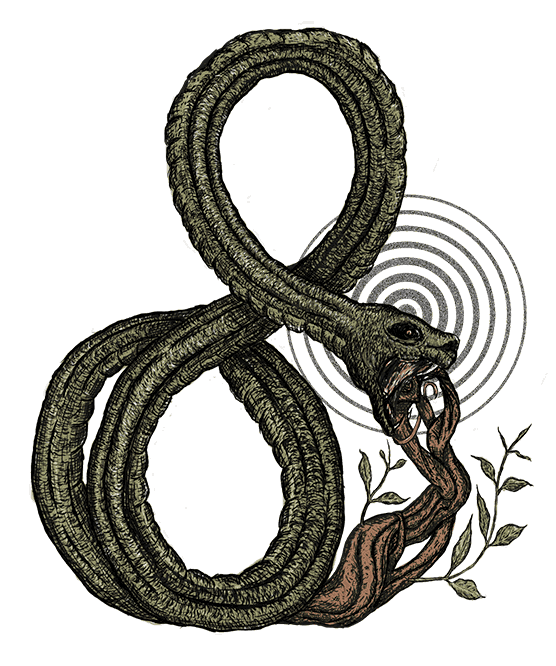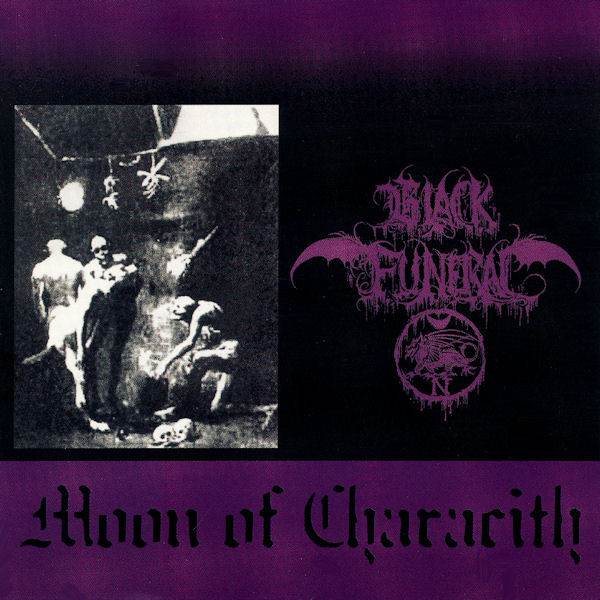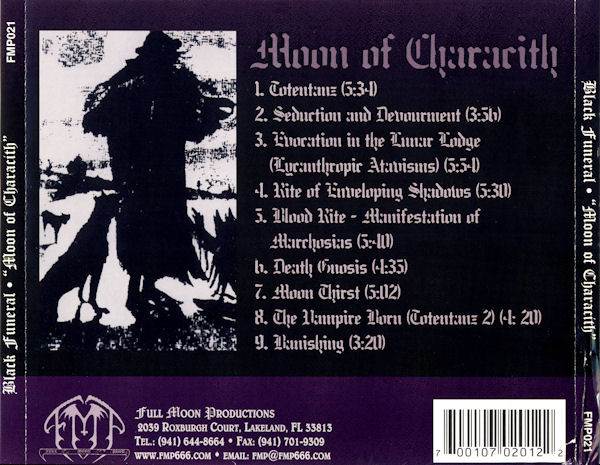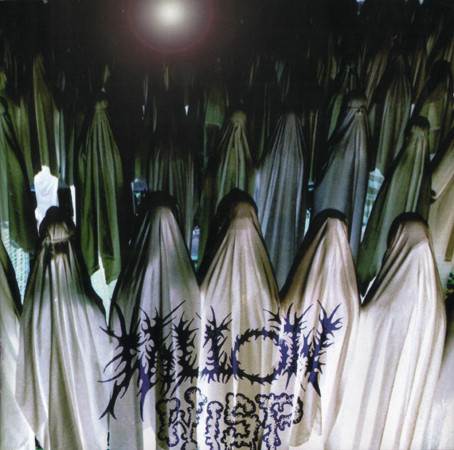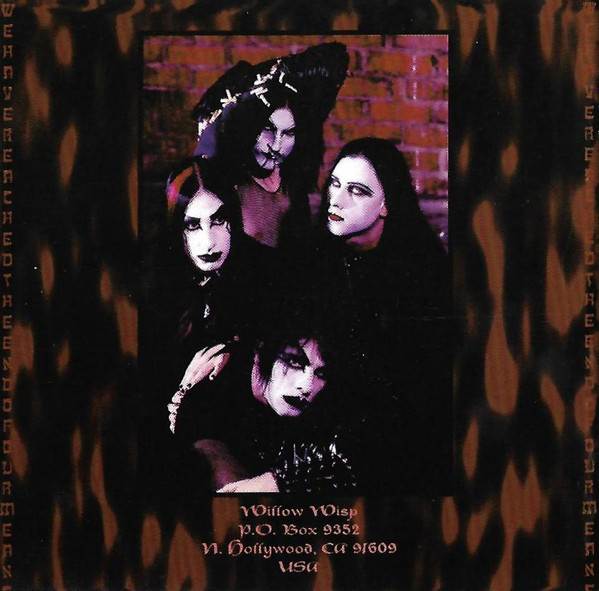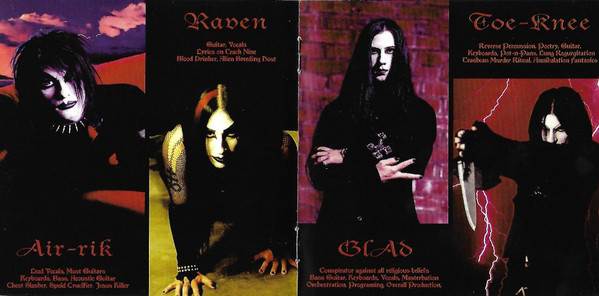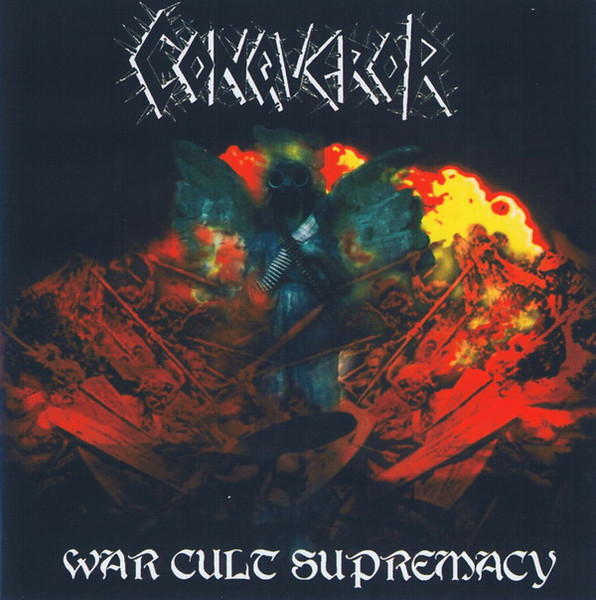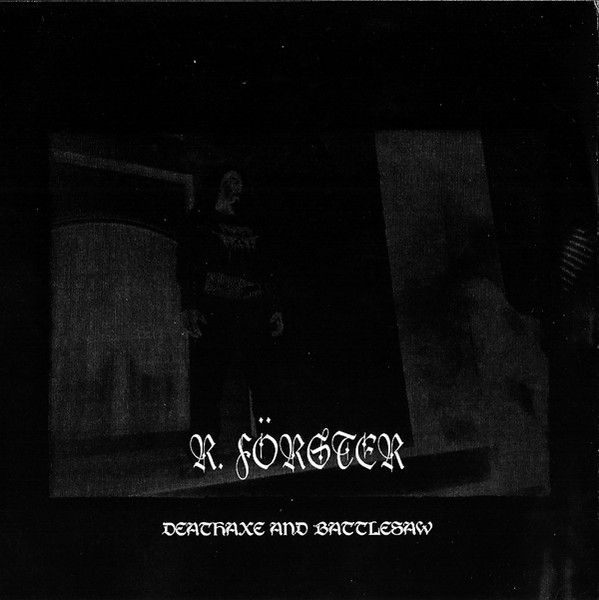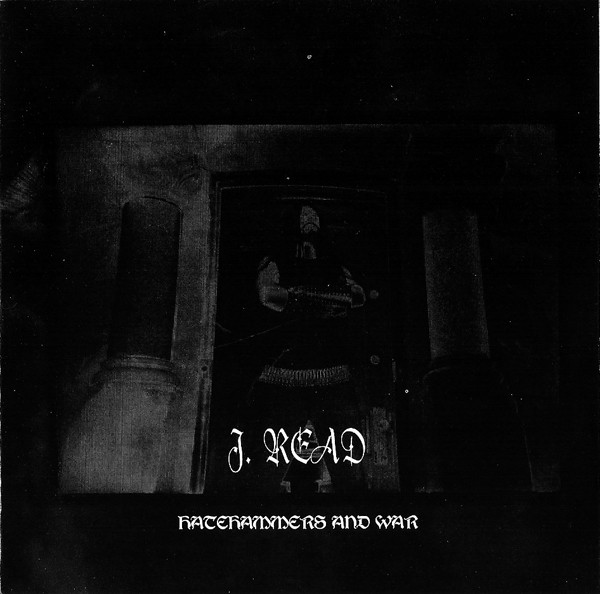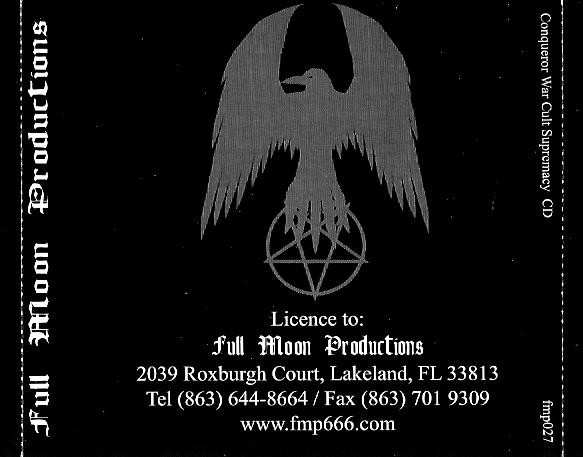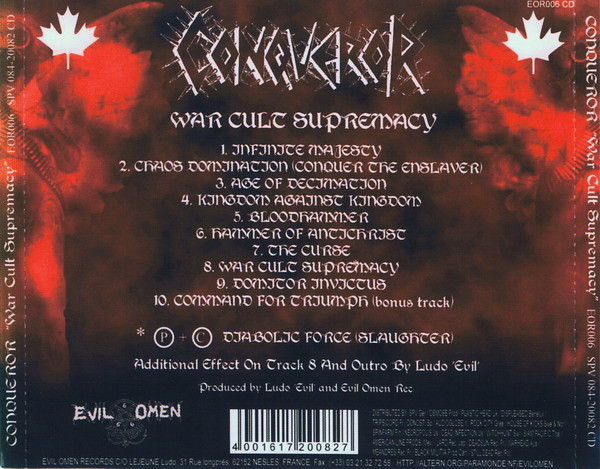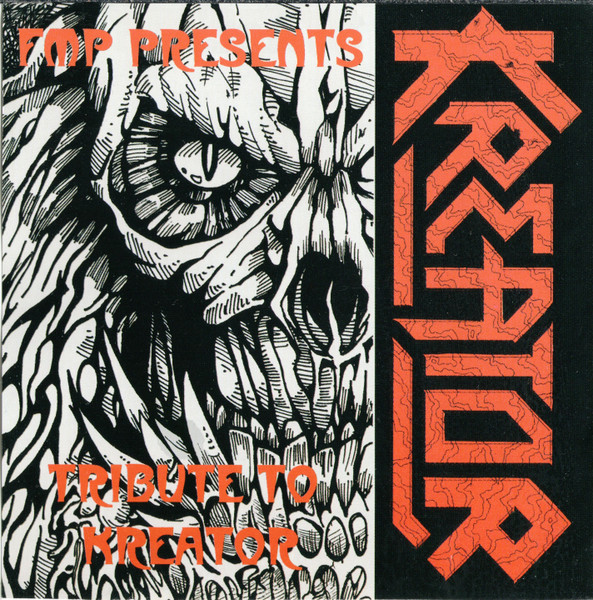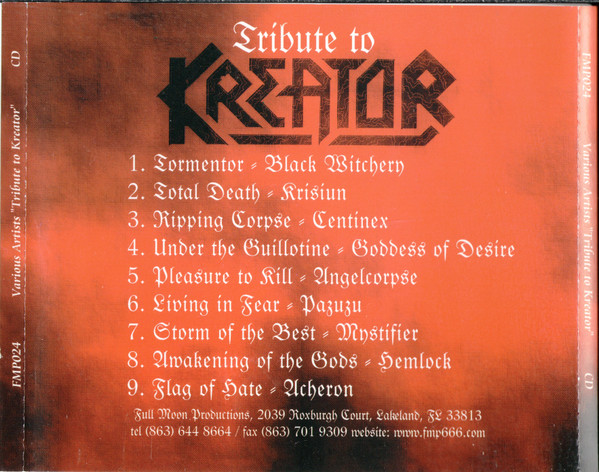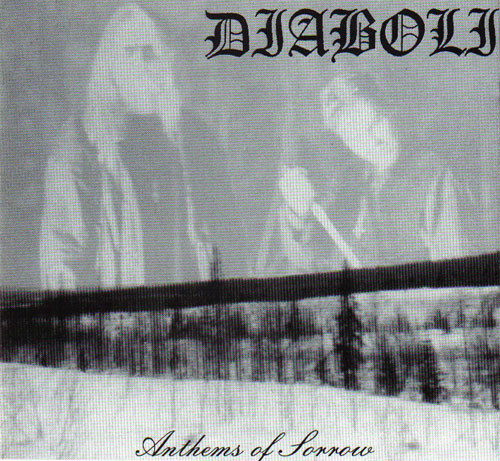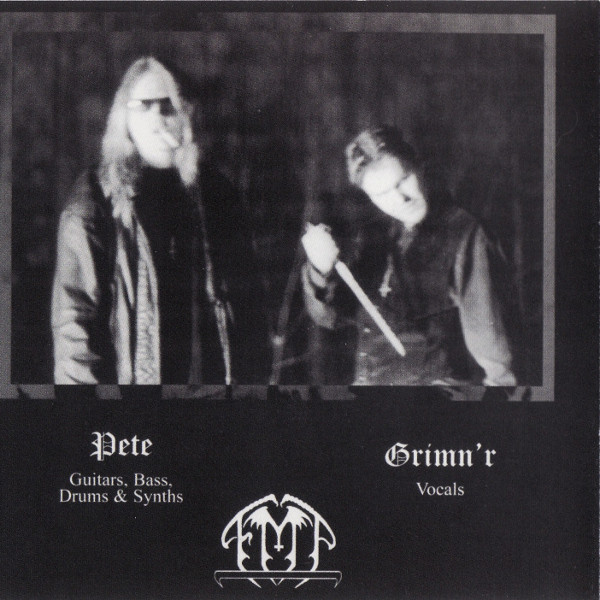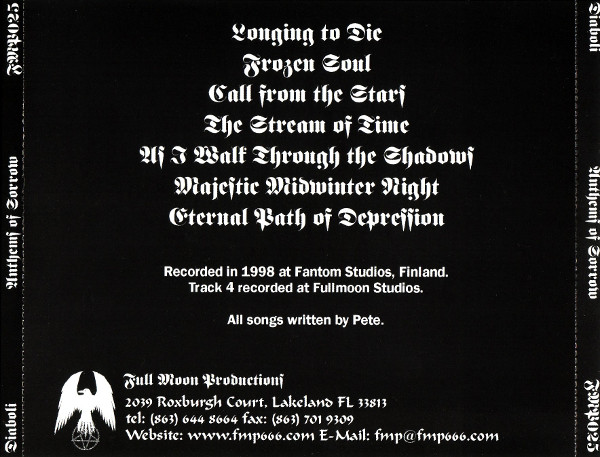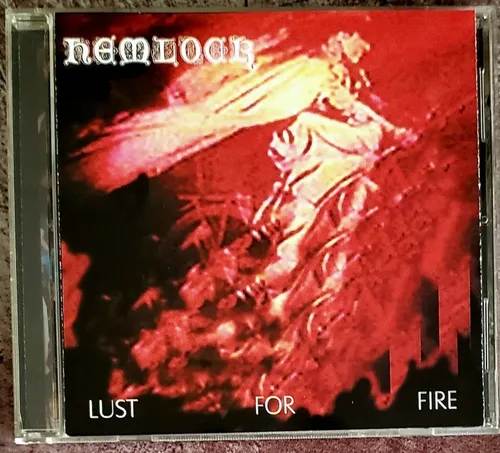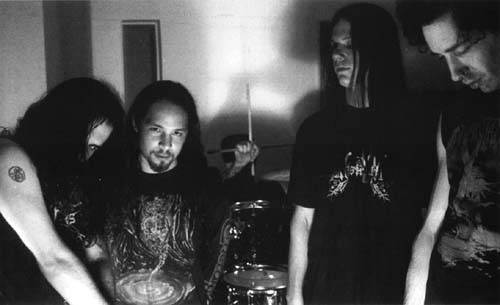Full Moon Productions VII
2025-09-10
by Niklas Göransson
In 1999, Conqueror’s War.Cult.Supremacy tore through the underground – primal chaos cast in permanence by Full Moon Productions. From its embers rose Black Witchery, carrying that same fire into the new millennium.
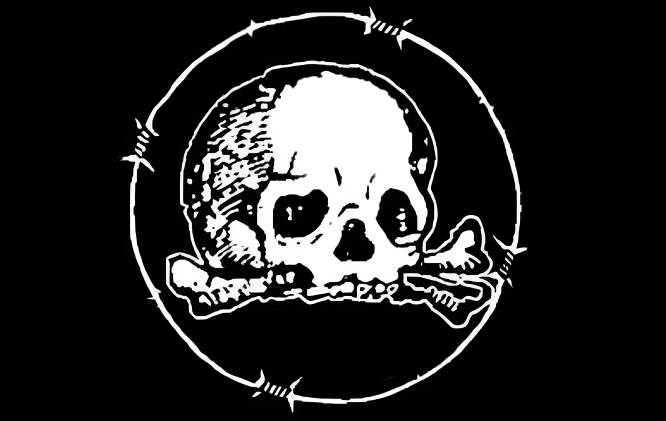
JON JAMSHID: The F.M.P. website started as an online mail-order catalogue. Over time, I added interviews, advance tracks, and a message board – probably the biggest black metal forum of the era. We even had a chat function, though it mostly devolved into endless fighting.
In the late ‘90s, especially in niche subcultures like the black metal underground, IRC was still the main online gathering place. Email lists and Usenet were strong; forums existed but didn’t really take over until the early 2000s.
JON: I had a traffic counter, and the numbers were outright shocking. Scores of people visited my site – not just American metalheads, but even more from Europe. So, I figured adding an online shopping cart would be a worthwhile investment.
In February 1999, fmp666.com rolled out a secure ordering system. Plenty of underground labels had websites by then – but outside of blackmetal.com, few offered true online checkout instead of mail-in orders.
JON: Needless to say, this was incredibly helpful to F.M.P. – but since online shopping increased the overall order flow, it also benefited my distribution partners and had a ripple effect across the entire network. Soon enough, almost half of our customers bought their stuff online.
But most still called in?
JON: Yeah. Here’s the thing: a lot of motherfuckers are slow to adapt. If you’re used to a printed catalogue, phoning to check stock, stuffing cash in an envelope, and mailing it off, you don’t change overnight. So, the other half kept calling – and stayed on the line to bullshit.
As someone who hates small talk and phone calls in equal measure, I sympathise.
JON: I’d get calls like, ‘Hey, I want to buy some black metal. What do you recommend?’ Suddenly, you’re in a full-blown consultation – walking through new releases, trying to explain what each one sounds like. Before you know it, you’ve burned the whole fucking day just describing albums to people.
JON: BLACK FUNERAL had built a strong international following. With each F.M.P. release, distributors placed orders based on demand in their regions; “Moon of Characith” did really well in the US, though not as much in Europe because it wasn’t really black metal anymore.
With the 1999 “Moon of Characith” album, BLACK FUNERAL evolved from the raw black metal of “Vampyr: Throne of the Beast” and “Empire of Blood” toward a more ritualistic, ambient style.
JON: Michael Ford also pitched me several of his ambient side projects, such as DARKNESS ENSHROUD, but I passed. It felt like a turning point, or at least a reflection of where the scene was heading. Many bands started leaning into more progressive, experimental sounds – especially in Norway.
During the late 1990s, the minimalist, lo-fi approach that defined early Norwegian black metal eroded quickly as flagship names pushed both sound and imagery into unfamiliar territory.
Many will remember June 1998 as an early warning sign. GEHENNA – who’d perfected their strain of spectral, ghostly black metal through “First Spell” and “Seen Through the Veils of Darkness” – released “Adimiron Black”, presenting a revamped sound and aesthetic. Then, in December of that year, ULVER nearly abandoned guitars altogether on “Themes from William Blake’s The Marriage of Heaven and Hell”, blending experimental electronics, ambient, and progressive rock.
In March 1999 came EMPEROR’s third album, “IX Equilibrium”, pushing further into the avant-garde. Different, but not quite as outlandish as DØDHEIMSGARD’s June surprise: “666 International”, featuring members in sequinned dresses and purple face paint, alongside techno beats, piano interludes, and industrial noise. Then, three months later, SATYRICON’s “Rebel Extravaganza” introduced an industrial, groove-laden sound – the early stirrings of ‘black’n’roll’.
JON: It was tough to keep up with all the different directions these bands were heading in. Nevertheless, BLACK FUNERAL’s name carried enough weight that, despite the change, their records still sold reasonably well – just not as much as the first two.
What kind of response did you get from customers regarding the sudden stylistic change?
JON: Not many complaints – mostly curiosity about why they’d shifted. I didn’t discuss the album with many customers one-to-one, but when it came time to promote the release, I spelled it out clearly in the promo text: this isn’t black metal in the traditional sense.
However surprised the F.M.P. audience was by “Moon of Characith”, I’d wager the signing of WILLOW WISP caused even more confusion.
JON: If you remember, Metalion reviewed WILLOW WISP in Slayer Mag. Then he emailed me directly, saying, ‘Check out this band – they have a unique sound. You should sign them.’ I listened and, being perfectly honest, it wasn’t something I’d normally be into.
I can imagine. WILLOW WISP was an American gothic rock band that self-released their debut album “The Building Up and Breaking Down of Matter” in 1997.
JON: Here’s the thing, and it’s a little hard to explain: I needed some titles to sell so I could keep funding the heavier, more monumental F.M.P. releases. Every band I signed went into the studio to record on my dime, so I had to keep a pool of cash to make that happen.
You were hoping WILLOW WISP might help F.M.P. break into a different subgenre?
JON: Yeah – maybe they could reach a broader audience and help generate the income needed to keep pushing forward. I thought their imagery and presentation might open doors, but it didn’t happen.
Full Moon Productions released FMP022, WILLOW WISP’s “Delusion of Grandeur: (A Gathering of Heretics)” in 1999.
A contemporary promo text describes it as an ‘ungodly mix of black metal with gothic, dark ambient sounds accompanied by thought-provoking poetic genius.’ A later mail-order catalogue listing uses more modest terms: ‘Eccentric Black/Goth’. In an even later interview, Jon called it ‘the most hated of all F.M.P. releases’.
JON: I realised F.M.P. had become very black metal-centric; the label’s followers weren’t interested in something like WILLOW WISP. Outside our circle, it didn’t catch on either. “Delusion of Grandeur” wasn’t necessarily a bad release, though – it just didn’t perform the way I expected.
Were you surprised by how polarising it was?
JON: Yeah, it caught me off guard. But hey, not every release will be killer, right? If WILLOW WISP had been on a different label, one focused on their style, it might’ve done better. Coming from a black metal label known for raw, underground, abrasive stuff? Like oil and water – total disconnect.
Did this debacle have any lasting impact on how you approached signing more unconventional acts?
JON: Absolutely. If anything, it pushed F.M.P. further into the extreme. From that point, I stopped thinking in terms of commercial appeal and followed my own belief system. I gave up on chasing wider audiences and focused on releasing what I cared about.
JON: In 1999, Ludo Evil reached out to say he was shutting down Evil Omen and wanted me to take over some unreleased titles – CONQUEROR’s “War.Cult.Supremacy” among them. Around the same time, Impurath (BLACK WITCHERY) called and flat-out told me I had to release it.
Evil Omen Records – an Osmose Productions subsidiary run by Ludo ‘Evil’ Lejeune, known for his devotion to BLASPHEMY and SARCÓFAGO – signed CONQUEROR in 1996. Ludo wired the studio money, following which the Canadians recorded “War.Cult.Supremacy” and delivered the master and layout. But before they could press it, Evil Omen went bankrupt, leaving the album in limbo.
JON: I’d known Impurath a long time and trusted his judgement. I told him Ludo had offered me the CONQUEROR masters for next to nothing – about a thousand bucks – saying, ‘I don’t need to make money off this album, I just want it out there.’ So, I asked to hear it.
What were your first impressions?
JON: Man, it was so fucking harsh I actually paused for a moment; no melody, just pure chaos. I thought, ‘Is this pushing things too far?’ Then I looked at the imagery and artwork, went over the terms, and realised I had nothing to lose. ‘You know what? Fuck it – let’s go.’
Your edition used Evil Omen’s original layout and catalogue number – was that an oversight, or did you just not bother changing it?
JON: Ludo sent everything ready to go – films, masters, the whole package – so I figured I’d release it as-is. After that, I reached out to CONQUEROR to see if the members wanted to update the layout, since I was planning a second press. They sent a completely new design.
“War.Cult.Supremacy” is often cited as the birth of ‘war metal’ and a catalyst for the resurgence of bestial black metal. Ironically, it also had the effect WILLOW WISP was intended to have.
JON: It drew interest far beyond our usual network – outside distributors reached out, and the response was stronger than I ever expected. People appreciated the minimalist layout and that stripped-down, punishing sound. So raw and unapologetic, CONQUEROR really hit a nerve.
Undeterred by the chaos surrounding “A Tribute to Hell…”, Jon followed in 2000 with a KREATOR tribute compilation featuring KRISIUN, ANGELCORPSE, ACHERON, CENTINEX, and BLACK WITCHERY.
JON: One thing about me – I learn everything the hard way, but I don’t repeat mistakes. A tribute album is different: fewer bands, no new writing required, just rehearse the cover and record it. The whole process was far more straightforward.
Why KREATOR in particular? Do they hold a special place in your heart?
JON: I first wanted a DESTRUCTION tribute but eventually reconsidered. One of my bands was heading into the studio and mentioned a KREATOR cover. I told them, ‘You might as well record that for a tribute’ – and the idea took shape from there.
By the turn of the millennium, F.M.P. claimed twenty-four-hour order processing and zero lost packages. Shipping now included priority mail and delivery confirmation. A May 2000 news post stated that fmp666.com had to upgrade servers due to traffic volume.
JON: The hosting company called and said their servers were getting absolutely hammered by F.M.P. visitors. I hadn’t paid attention to that kind of thing – I didn’t even realise it could happen. This wasn’t on my radar, so it caught me off guard.
How involved were you in the technical backend?
JON: Everything on the site – design, updates, programming – was me. Now and then, I’d bring in someone to deal with something specific. For instance, when we started offering music downloads, I paid a pro to set it up.
In September 2000, Full Moon Productions released “Anthems of Sorrow” by Finland’s DIABOLI. A few months earlier, fmp666.com reported that the band’s driving force, Petri Ilvespakka, had been jailed for attacking someone with an axe.
JON: I don’t remember the specifics. Petri and I were in regular contact, constantly writing back and forth. I recall him writing me from jail, saying he’d attacked someone. I kind of chuckled and posted it on the website because – well – it was news. I never knew the full story.
In terms of black metal marketing, that’s as much as any label owner could hope for.
JON: Yeah, you know how it is. Negative acts, bad press, controversy – they tend to work in your favour. There was plenty of curiosity. Stuff like that always sparks interest; people want to know what the fuck happened. Some picked up the album purely because of the incident.
In March 2001, Full Moon Productions released HEMLOCK’s second album, “Lust for Fire”. After “Funeral Mask”, their 1998 debut on Head Not Found – the label run by Slayer Mag editor Metalion – they signed with F.M.P.
JON: “Lust for Fire” ended up being one of the label’s more obscure titles – we pressed a thousand and never re-issued it. I considered another run, but the sound didn’t align closely enough with what F.M.P. had become known for, so I left it a one-off.
Neill Jameson of KRIEG called HEMLOCK ‘the most underrated US black metal band’, suggesting the album never got its due.
JON: I do agree. Honestly, that might be my fault. Around then, our budget took a hit; we weren’t bringing in what we had in the previous couple of years, so things got tight. I don’t think I ran a single ad for HEMLOCK. The only promotion was the catalogue – no flyers, no outside push.
By this point, Full Moon Productions had signed BLACK WITCHERY – a Floridian black metal trio who’d started making a serious name for themselves, especially after opening for BLASPHEMY in Vancouver the year prior.
JON: As I said, I’ve known Impurath since he was literally a young kid playing in IRREVERENT. I remember his mom dropping him off at shows – he wasn’t even old enough to drive, just catching rides wherever he could.
log in to keep reading
The second half of this article is reserved for subscribers of the Bardo Methodology online archive. To keep reading, sign up or log in below.
